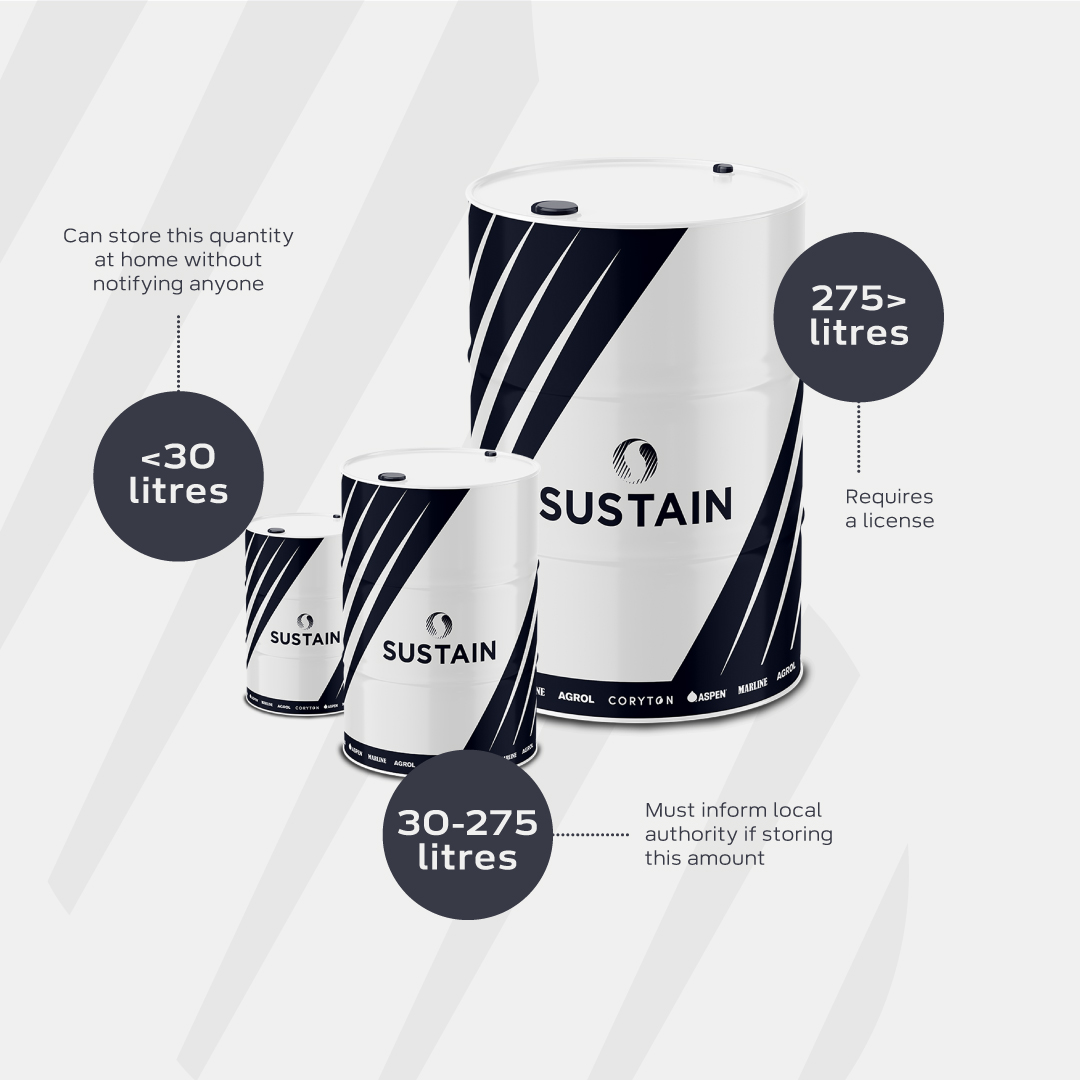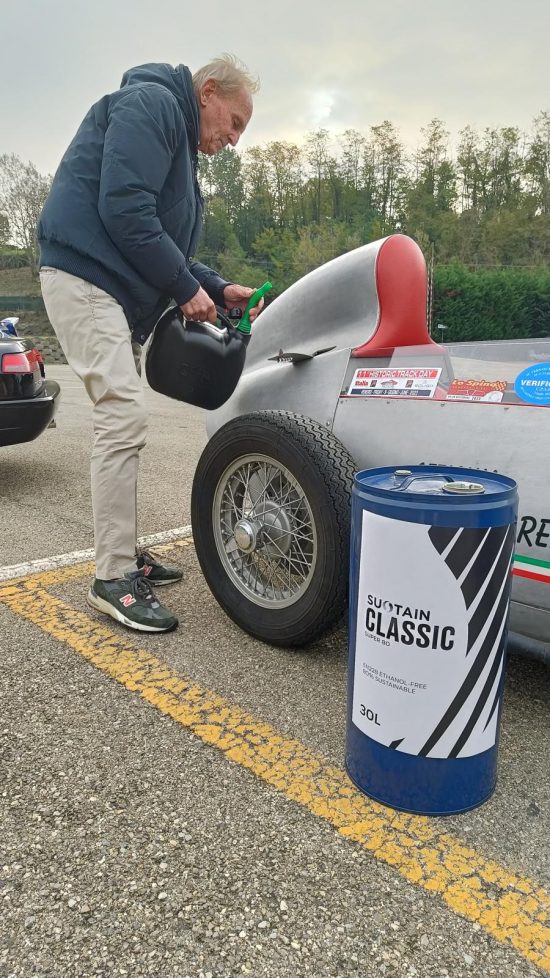Introduction To Fuel Storage
As the environmentally friendly alternative to traditional fossil fuels, the demand for storing biofuels is steadily on the rise. As more people turn to SUSTAIN Classic biofuels for their energy needs, a pertinent question arises: How much biofuel can one safely and legally store at home? Whether you are looking to store the sustainable fuel at home, club/association or commercial premises, this article aims to guide you through the ins and outs of biofuel storage. Focusing on the legal boundaries, safety protocols, and environmental considerations.
Biofuels Legal Framework
Biofuels, much like traditional fuels, fall under various regulations designed for safe usage and storage. Since these laws can differ from one place to another, it’s crucial to check both local and national guidelines. Commonly, biofuels receive similar treatment to fossil fuels in terms of storage laws.
In the United Kingdom, in line with Government and HSE regulations you can store up to 30 litres of fuel in your home, with up to 10 litres in a plastic container, 20 in a metal container and up to 30 in a demountable fuel tank.
For storing between 30 and 275 litres, you must notify your local Petroleum Enforcement Authority (PEA) with the storage location, alongside your name and address. This allows the fire department to proceed with extra caution in the eventuality of an incident at your property or the surrounding area.
If you are looking to store more than 275 litres of biofuel, you must attain a petroleum storage certificate and license. This is issued by your local PEA which lasts up to three years. For more information on the different storage volumes.

Does the petrol in the fuel tank of my car count towards the total I can store?
No, the petrol in the fuel tank of your vehicle(s), does not count when you are calculating the total amount of fuel you are storing.
Safety Guidelines
Container Specifications
- Material: Use containers made of materials compatible with the type of biofuel you are storing.
- Capacity: Do not overfill containers. Leave some space to allow for fuel expansion.
- Labelling: Clearly label all containers with the type of biofuel and its potential hazards.
Storage Location
- Ventilation: Store in a well-ventilated area.
- Distance: Keep biofuels away from living spaces and potential ignition sources like electrical equipment.
Safety Gear
- Fire Safety: Keep a fire extinguisher rated for fuel fires nearby.
- Protective Gear: Use gloves, goggles, and other protective gear when handling biofuels.
Insurance Considerations
Some insurers have restrictions on storing flammable or hazardous materials so it’s worth checking your insurance policy to see if fuel storage is covered or if storing biofuels may affect your coverage.
Environmental Considerations
Storing biofuels responsibly also means considering their environmental impact. Spills and leaks can be detrimental to soil and water sources. Hence, it’s crucial to have containment measures and spill kits readily available.
Conclusion
Storing biofuels at home or your commercial facility is possible, but it’s essential to understand and comply with all legal limitations and safety guidelines. Proper containers, appropriate storage locations, and safety equipment are non-negotiable requirements for safe and responsible biofuel storage. It is important to consider regulations can evolve, so always stay updated with the latest rules and recommendations.





